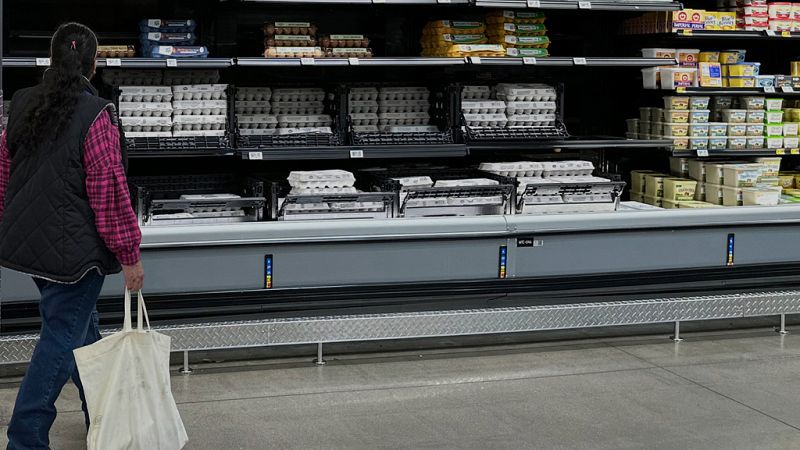Groceries in Portugal are €17 more expensive than a year ago, eggs see the steepest price hike

The price of a shopping basket in Portugal monitored by DECO PROteste is now €17 higher than it was a year ago.
Despite a slight drop in the last week of August, of 13 cents (-0.05%), to €241.17, this is one of the highest prices since the Portuguese consumer protection organisation started monitoring the price of 63 essential goods in the country.
At the beginning of this year, on 1 January, the basket of essentials cost €5 less (2.12% lower). A year ago, on 28 August 2024, it cost €16.54 less (7.36% lower). In January 2022, consumers spent €53.47 less (28.48% lower) to buy exactly the same food products.
Which products have increased the most?
In the last year, between 28 August 2024 and 27 August 2025, the price of eggs increased the most: by 60 cents (41% more). For example, to buy half a dozen eggs, those in Portugal may now have to spend €2.06. A year ago, the same box of eggs cost €1.47.
Eggs are also among the products in the food basket whose price has risen the most in percentage terms since the beginning of this year. On 1 January 2025, eggs cost €1.61, 45 cents less (28% lower) than at the end of August. In January 2022, when DECO PROteste began this analysis, eggs cost €1.14, 92 cents less (81% lower).
In addition to eggs, when comparing prices in the last week of August with the same period in the previous year, on 28 August 2024, the biggest percentage price increases were also seen in products such as curly lettuce (up 38%), broccoli (up 33%) and beef for cooking (up 28%).
Looking at the week between 20 and 27 August, the products whose prices increased the most were fish fingers (up 22%), frankfurter sausages (up 13%) and onions (up 10%).
Compared to January 2022, the biggest percentage increases were in beef for cooking (up 92%), eggs (up 81%) and oranges (up 71%).
Basket prices have risen by €5.43 since the end of zero VAT
In order to ease the burden on consumers and curb the rise in prices of essential goods, in March 2023, then-prime minister António Costa's government in Portugal signed an agreement with food retailers and the agri-food production sector that resulted in VAT exemption on a basket of more than 40 foods between 18 April 2023 and 4 January 2024.
According to DECO PROteste, when that exemption ended on 4 January 2024, the basket of 41 foods that had zero VAT saw the price rise by €5.43 (3.82% increase), from €141.97 to €147.40, on 27 August 2025.
Beef for cooking, eggs and sea bream were the products that saw the biggest percentage price rises since the last day of VAT exemption on 4 January last year, with increases of 36%, 35% and 34% respectively.
Why have food prices risen so much in the last three years?
According to the consumer protection organisation, the rise in prices of essential goods can be explained by a number of factors.
In large part, it's due to the Russian invasion of Ukraine, where a large part of the cereals consumed in the European Union (and Portugal) came from. The war put pressure on the agri-food sector, which was trying to get back on its feet after the consequences of the COVID-19 pandemic and the drought.
The limited supply of raw materials and the increase in production costs, particularly for fertilisers and energy, which are necessary for agri-food production, was therefore reflected in an increase in prices on international markets and, consequently, in consumer prices for products such as meat, fruit and vegetables, breakfast cereals and vegetable oil in 2022.
In the case of eggs, the explanation lies in the global crisis caused by bird flu, which has led to shortages, especially in the United States, where more than 170 million hens have been slaughtered since 2022, when the outbreak began.
Both Portugal and the rest of Europe have been contaminated by the North American crisis, as demand outstrips supply.
Today

